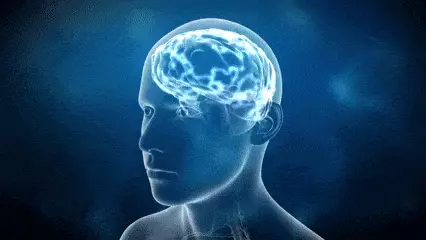Dr. Noa Bergman explains what causes Alzheimer's, is there a way to prevent the disease, and how do you treat someone who has already had the disease?
Five people diagnosed with Alzheimer's contracted the disease as a result of a medical procedure they underwent decades ago, according to a new study published in Nature Medicine.
The medical procedure these people went through is no longer in use, but these findings can provide important insights into the disease that science has been trying to decipher and find a cure for for many years.
Eight cases of UK patients treated with cadaver-derived human growth hormone were reviewed by a team from University College London.
This treatment was used between 1959 and 1985, and at least 1,848 patients received it, usually during childhood, to get high.
However, after reports were received of a number of patients dying from Creutzfeldt-Jakob disease (CJD), which was caused by the appearance of prions, the treatment was banned from use.
Prions are disease-causing proteins of an infectious nature, which cause "mad cow" disease, or Creutzfeldt-Jakob disease in humans.
A change in the spatial structure causes these proteins to create a chain reaction that changes the structure of proteins adjacent to them, a phenomenon that leads to the creation of toxic precipitates.
These cause diseases.
You can get infected from it.
Alzheimer's/Giphy
In most cases, prion diseases arise randomly, for no apparent reason.
However, in these cases, the disease resulted from the same medical procedure.
After the risk of Creutzfeldt-Jakob disease became clear in the mid-1980s, treatment was stopped and a university medical team began monitoring the many affected patients.
Through postmortems, it began to become clear that there might be something else going on in the brains of those who died of Creutzfeldt-Jakob disease bringing those patients closer together.
The researchers found evidence of amyloid-beta pathology, a hallmark of Alzheimer's disease.
However, the symptoms of Creutzfeldt-Jakob disease masked any signs of Alzheimer's in these people when they were alive, so the researchers could not be sure what the effect of this pathology was.
In the current study, the researchers focused on eight people who did not develop Creutzfeldt-Jakob disease after the treatment for increased growth they underwent in childhood.
Among five of them, who were between the ages of 38 and 55, symptoms consistent with Alzheimer's disease-related dementia began to appear, which progressed and worsened over time.
Of the remaining three, one had no symptoms at all, another patient had some mild cognitive symptoms, and the third patient met criteria for a diagnosis of mild cognitive impairment, which can sometimes progress to dementia.
The red light came on for the researchers because the patients who were diagnosed with Alzheimer's were young compared to the average age at which the disease is diagnosed.
Genetic samples from those five patients allowed the researchers to rule out the rarer inherited form of Alzheimer's disease.
More in Walla!
It's so delicious and simple: a recipe for caramelized bananas
In collaboration with the Galil company
Is there any reason to fear that we will contract Alzheimer's?
The researchers' conclusion was: the amyloid-beta proteins that were transferred to the patients in their childhood, during the height acceleration treatment, are the ones that led them to Alzheimer's-like brain pathology in mid-life.
Previous research with animal models has already proven this theory.
A study in mice published in 2018 confirmed the possibility that amyloid-beta can act like prion, and that its injection can lead to the accumulation of harmful protein deposits in the brain.
But, and it is very important to emphasize, all this does not mean that Alzheimer's is contagious.
"Transmission probably requires direct contact with the brain or the presence of pathogenic forms in the circulation of the proteins in the bloodstream," explained one of the study's editors.
"There is no claim that Alzheimer's disease can be transmitted between people during activities of daily life or routine," emphasized Prof. John Kolinga, the lead researcher in this study.
"The patients we examined received specific medical treatment that had been discontinued a long time ago and included injecting a substance into the patients that is now known to have been contaminated with proteins associated with the disease.
"While similar cases of Alzheimer's infection may be very rare, it is important that we reexamine medical procedures that may bring with them an increased risk of infection.
In light of the challenges in treating and preventing Alzheimer's, the findings can help scientists better understand the progression of the disease and develop new treatments."
More on the same topic:
Alzheimer's
dementia

